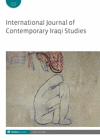-
f The American media and the Iraq war at its tenth anniversary: Lessons for the coverage of future wars
- Source: International Journal of Contemporary Iraqi Studies, Volume 8, Issue 1, Mar 2014, p. 15 - 34
-
- 01 Mar 2014
Abstract
On the tenth anniversary of the Iraq War of 2003, most scholars agree that the war had serious consequences for the Middle East and the United States. Some journalists now believe that the war coverage constituted a ‘mini-Alamo’ for American journalism. Deficient war coverage damaged the reputation of the American media as a source of reliable news about the United States because of the way it covered the Bush administration’s case for going to war, and the way it reported war’s devastating effect on the Iraqi population. This study analyses how the Bush administration managed to get media compliance for its verbal and visual narrative of the war, thus co-opting American journalism (and by extension, that of other countries that relied on it). The study also illustrates how Arab historical master narratives disseminated by the frames introduced by Al Jazeera through its reporting from the scene challenged and sometimes foiled CENTCOM’s narrative and its psychological operations. Finally, the study illustrates the role of cartoonists in culture-jamming the official narrative by publishing on the Internet, thus undermining the Bush administration’s main Orwellian message that ‘war is peace’. This study suggests that the examination of what went wrong for the media in Iraq provides a cautionary tale about the dangers of acting as government stenographers during wartime.


